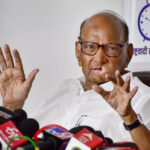The recent security breach in Parliament has severe political, electoral, legislative, and security implications. The resultant unprecedented suspension of 146 MPs has now united the Opposition coalition, the INDI-Alliance.
Lok Sabha witnessed two intruders jumping from the visitor’s gallery and uncorking smoke canisters inside the Lok Sabha. It is a mystery how they entered the House despite the five-tier security that protects Parliament.
Unfortunately, parliaments of various countries have been attacked in the past. They include the 1981 Spanish coup attempt, the 2017 UK Parliament Terror Attack, the 1987 Sri Lankan Parliament Grenade Attack, the 2021 US Capitol Attack and the Oct 2023 Turkish government building attack. In each case, appropriate corrective measures were taken immediately.
In the instance of this attack on the Indian Parliament, soon after the incident, security was tightened further and Parliament House was “fortified” even as a high-level probe of the breach was ordered. More measures are expected after the high-level enquiry report is submitted.
The security breach highlights the importance of strictly implementing the already rigorous security measures that were introduced after the 2001 terrorist attack. It is crucial for thorough screening of visitors. Members of Parliament should be cautious when recommending passes and should be held accountable for their actions. The intruders had obtained passes on the recommendation of the BJP’s Mysuru MP.
The government responded quickly by ordering a thorough investigation. All the six individuals involved in the incident have been apprehended and face tough charges.
After the shocking security breach, the Opposition demanded a statement from Home Minister Amit Shah, which he refused to provide. This led to chaos and confrontations that could have been avoided if Shah had made a brief statement. The Opposition created an uproar that led to the suspension of 146 unruly members, mainly from the INDIA Alliance.
According to the rules, there are two reasons for which members can be suspended from the House. The first is when a member disrespects the authority of the Chair. The second is when a member intentionally and persistently obstructs the proceedings of the House. In this instance, the suspended members went against the authority of the Speaker and Chairman of the Rajya Sabha.
A total of 146 members were suspended for insulting Parliament, mimicking the Rajya Sabha Chairman, and defying the Speaker. The Rajya Sabha Chairman and the Lok Sabha Speaker made the decision, stating that such unruly behaviour was unacceptable.
With the 2024 Lok Sabha elections on the horizon, it appears that neither side is focused on running the House. The Budget session, slated for next month, may also encounter confrontations, but a vote on the account budget must be passed nonetheless.
The shocking Parliament breach will have an electoral impact as the opposition parties have come together to protest against the Modi government’s alleged authoritarianism. They have taken the issue to the streets and made it a significant election matter. The Opposition is asking the government how it can ensure the safety of citizens when it failed to protect such a high-profile asset like the Parliament.
Of course, damaging Prime Minister Narendra Modi’s reputation of a strong leader is crucial for the 2024 polls. So, as a first step, the Opposition has decided to put a joint candidate against BJP candidates in the Lok Sabha elections to avoid splitting Opposition votes.
As for legislation, crucial bills like the Criminal Law Amendment Bill, were passed while the suspended members protested outside. In the past, too, a bunch of laws were passed in minutes. Former Supreme Court Chief Justice N.V. Ramana had once expressed his disappointment that Members of Parliament did not thoroughly debate and discuss the bills they passed.
Members of Parliament have five primary functions –making laws, reviewing budgets, overseeing government activities, representing people and holding the government accountable. But, despite the best efforts of the MPs, they face difficulties when Parliament is not functioning smoothly. Without order in the House, it becomes challenging to highlight issues and establish a good understanding of specific topics.
Although it is the government’s responsibility to ensure the efficient functioning of Parliament, the Opposition should also offer productive feedback. After all, Members of Parliament are called “lawmakers” for a reason, and the legislative body is weakened when laws are not thoroughly examined and debated.
What is the reaction from the public? The public is appalled by the behaviour of the MPs and the 146 suspensions was unprecedented. Instead of addressing the concerns of their constituents, legislators blatantly create chaos in the House, which is so very disappointing for the public.
The task of creating laws is assigned to the legislature by the Constitution. The government executes these laws while the judiciary enforces them in the spirit of the Constitution. For a democracy to thrive, the effective functioning of Parliament is crucial. Better coordination between the government and the Opposition is essential to ensure the smooth running of the House. (IPA Service)
 Jairam Ramesh backs Pawar in PM face row
Jairam Ramesh backs Pawar in PM face row 